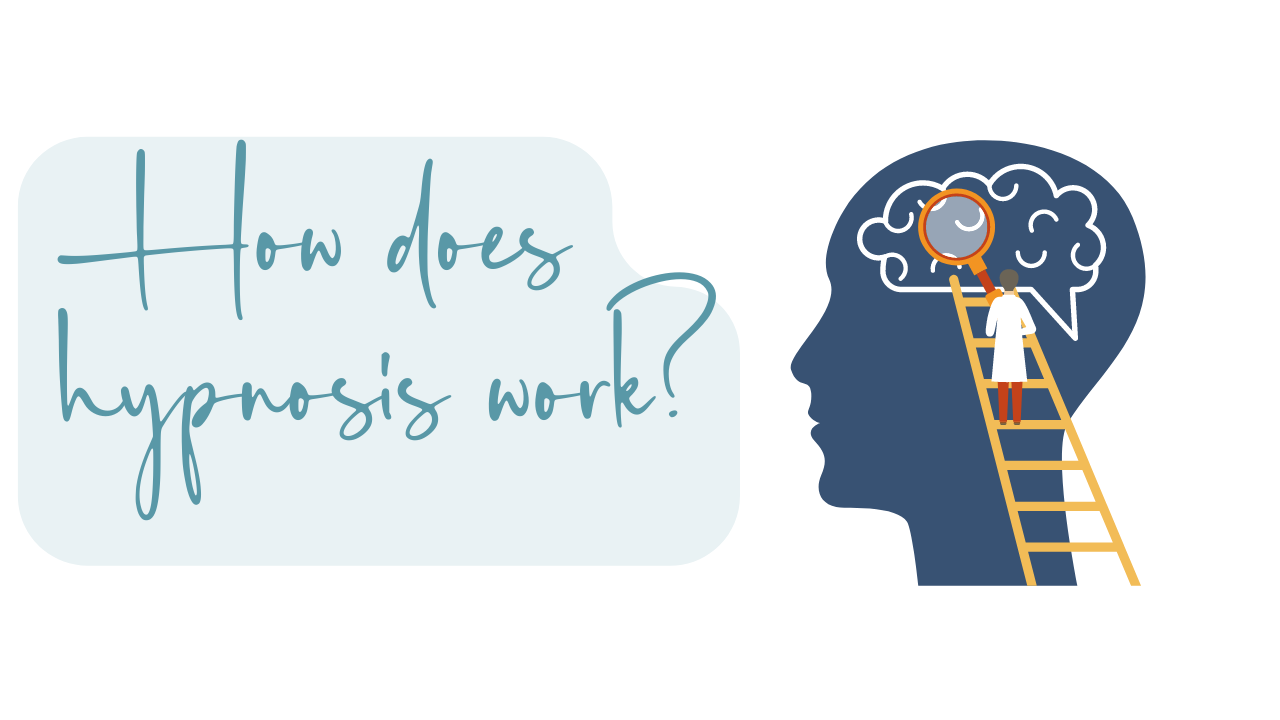
Why does hypnosis work?
Hypnosis is often the therapy on the edge of the crowd, quietly doing its own thing very effectively.
It's always been around, on the periphery because it works but we just didn't know why. From the Greeks, through to mesmerism in the 1800's (cue photos of hysterical women collapsing into the arms of a mesmerist), to its use in the NHS today. Hypnotherapy is a flexible, adaptable and creative therapy that can quite unexpectedly change peoples lives.
People are cautious about hypnotherapy because it's misunderstood. But, science is now starting to catch up and we understand more about this remarkable approach to therapy than ever before.
What happens in the brain during hypnosis?
Hypnosis is just a description for an altered state of mind. It feels like that moment before you drop off to sleep, though neurobiologically it is different.
Different parts of your brain are activated. When you are in a state of hypnosis the part of your brain that is typically more vigilant, self-conscious, analytical, becomes less active, while areas of the brain connected to action and behaviour are strengthened.
Think of it like a behaviour you are trying to change. You know what you need to do and you know that it's good for you? But there is an analytical part of you that is involved in decision making, it draws upon past information to stop you doing what you want to do right now. Decision making, however small or large, results in a complex serious of unconscious activations in the brain that draw on past information, experience, applied to future possibilities.
What has this got to do with my confidence and motivation?
Your instinct as a mammal is to survive, so your brain always wants to keep you safe and create the outcome it thinks is in your best interests. However, this may be based on information from a situation you were in 10 years, 20 years or even 30 years a more ago.
For example; smoking may have been a great way to be accepted and connect socially with friends when you were a teenager, or it could have helped you manage a stressful period in your life. Now you know it is damaging your health and could shorten your life it loses its appeal. But, your unconscious is still trapped in the belief that it's a cool thing to do that creates social connection.
When it boils down to it we want to feel safe and secure, connected and loved. Anything that threatens us or has threatened that, can trigger a fight or flight response which is often described as anxiety or a phobia.
Our definition of what you recognise as safe can change throughout your lives, it's fluid, but sometimes you are stuck in past beliefs which you've long outgrown and which can prevent you from what's best for you at this time in your life.
It's as if you know your destination and how to get there, but there are road blocks, closures, and maybe even a policeman stopping your for speeding!
In hypnosis we get rid of the roadblocks, traffic lights and pesky policeman, so you have a clear superhighway to your goal.
Can anyone be hypnotised?
Studies show that you are more likely to be hypnotised effectively if you are someone who can get lost in a book, their art, day dream, or be mesmerised by a beautiful sunset. Around 70% of people can be hypnotised while around 30% are what's called highly hypnotisable.
This is why I love hypnocaching, a blend of hypnosis and coaching. It allows me to work with your effectively using a range of different tools, enabling you to discover what works best for you.
Take a look at my online courses or book one of my hypnotherapy packages.
Stay connected with news and updates!
Join my mailing list to receive the latest news and updates.
Don't worry, your information will not be shared.
I hate SPAM. I will never sell your information, for any reason.

